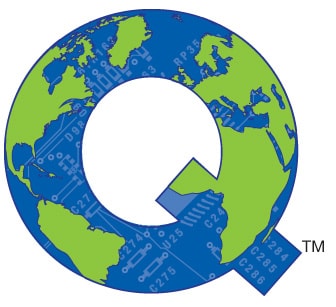Q&A with Richard Johnson, Head of Digital Strategy and Transformation

Richard Johnson has been with Pearson Assessment for just over 18 months and has been involved in the exciting process of launching two new digital assessment platforms within the UK; Q-global and Q-interactive.
Following the launch of 25 products on the Q-global platform last week, we caught up with Richard to find out more.
In fewer than 140 characters, can you tell us, what is Q-global?
Q-global is a new web-based platform that can be used for administering assessments, generating scores and producing comprehensive reports.

What features can customers benefit from?
The benefit of being web-based is that Q-global can be securely accessed 24/7 from any machine that meets the system requirements. This means customers are no longer tied down to using a specific machine and have access to data anywhere that they have an Internet connection.
Q-global is easy to use and offers on-demand reliable scoring coupled with comprehensive reporting solutions.
Who can use Q-global?
Any customer with access to an Internet connection will be able to use Q-global. It is quick to get set-up with a Q-global account, and from there it is straightforward to start creating examinees, assigning assessments to them, and generating a range of reports.
What assessments can customers find in Q-global from this July?
There are now 25 products available within Q-global, including the Alloway Working Memory Assessment, 2nd Edition (AWMA-2), Bruininks Motor Ability Test (BMAT) and Delis Rating of Executive Functions (D-REF). Q-global now also contains the products and reports that are available on our Q-local platform, including those for the bestselling Beck and Millon assessments.
We will continue making additional products and reports available in Q-global throughout 2013 and beyond, and I would encourage customers to keep an eye on our Q-global mini-site for up-to-date information.
Can you tell us a bit about the creation of Q-global – how long it’s been in development for?
Development on Q-global started back in 2010 in the United States, and since then there have been a number of key milestones, including the release of the first products within the platform in 2011. In 2012 the first content was made available to UK customers within the platform with the release of the D-REF, which was quickly followed with the AWMA-2.
We now have over 350 customers using Q-global within the UK. Q-global is also available in other international countries including Canada, Australia, Spain and the Netherlands.
The Q-global platform is still being developed, and we will continue to add more functionality to it based on customer feedback, and to support the increasing number of products that will be available through the platform.
What were the highlights and, or lowlights of the project?
I think the highlights of the project for me have been how quickly customers have adopted Q-global, and that we’ve been able to get 25 products available already, with more to follow this year.
The biggest challenge I’d say we’ve faced to date is managing the variety of computer systems, Internet browsers and settings that are used by customers and how we can make sure that Q-global is able to function on as many of these as possible. As with the majority of web-based applications, Q-global utilises a number of technologies that require some prerequisites to be installed or configured. Our challenge is to make this as easy a process as possible for customers to get up and running with Q-global, and we’re working hard to make sure we have the right support material available to facilitate this.
How does Q-global differ from other scoring and reporting platforms?
Traditionally scoring and reporting services have been offered in the form of CDs, or USB sticks, which required applications to be installed on a specific machine. This was a limitation for customers, as they would not always have access to the specific computer whilst they were on the move, and if something were to happen to the computer it could be a lengthy process to get up and running again.
With Q-global being a web-based platform, it means that customers can access the products and data from a variety of devices at their convenience offering much greater flexibility.
Ordering Q-global products is also much easier for customers and can be done either online via the Pearson Clinical Assessment websiteor by calling Customer Services on 0845 630 88 88. The first time a new customer orders a product that is available on the Q-global platform they are sent an email to create their unique username and password, and from there they will have access to their Q-global account. Traditionally customers would have to wait to receive a CD or another physical object before they could start using the platform. Q-global allows customers to start using their products much more quickly and with greater flexibility than they have been able to previously.
There is also no charge for accessing the Q-global platform for customers – the only charge is for the products that are ordered. This differs from other platforms where a charge is often applied for access to the platform as well as the cost of the products ordered.
How can people find out more about Q-global?
The best place to go for up-to-date information on Q-global is our UK dedicated mini-site. Our Customer Services team are also available on 0845 630 88 88 to answer any questions that you may have regarding Q-global, or to place orders for Q-global products.
Finally, what five words would you use to describe Q-global?
Secure, accessible, intuitive, flexible, and affordable.
Thanks Richard for taking the time to answer these questions.
If there's a product or platform from Pearson Assessment you would like to see featured on our blog, why not drop us an email at marketing@pearsonclinical.co.uk